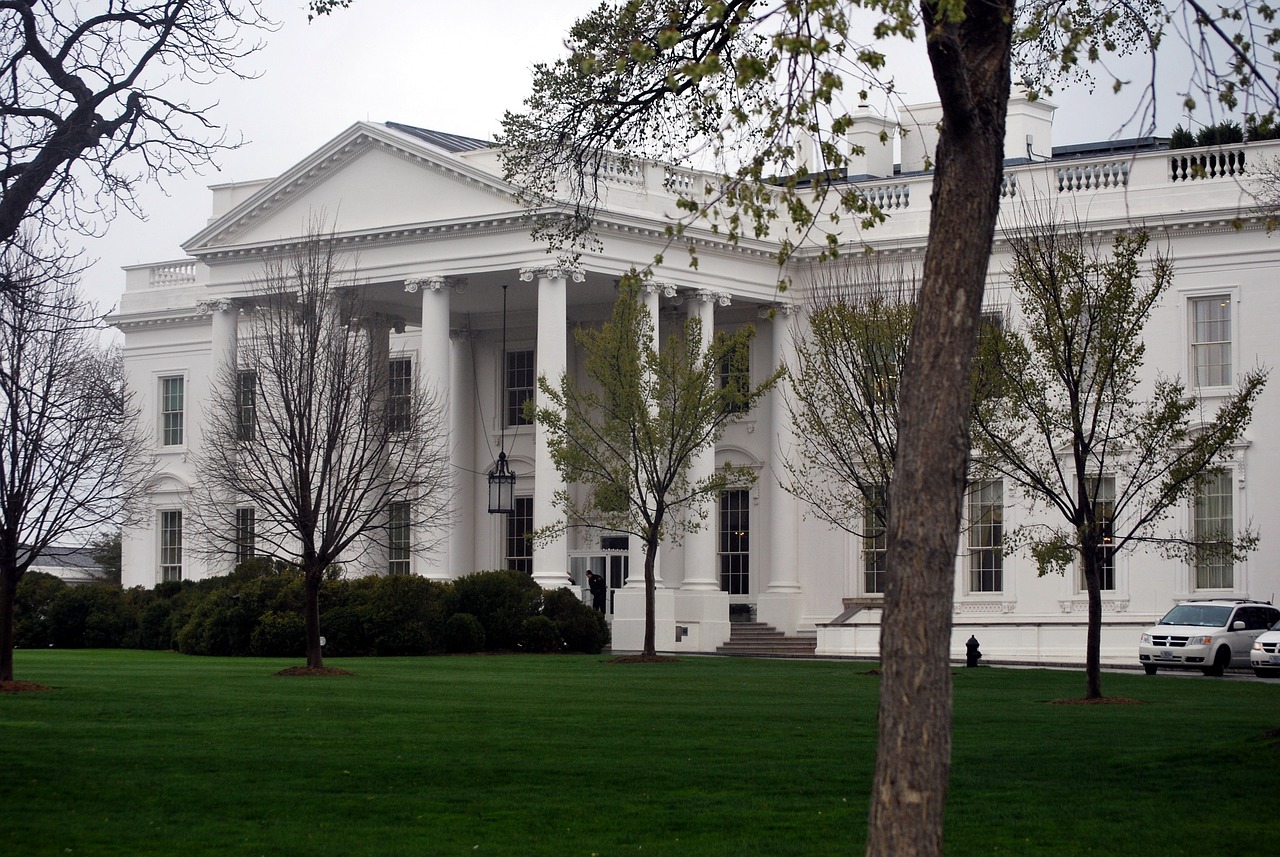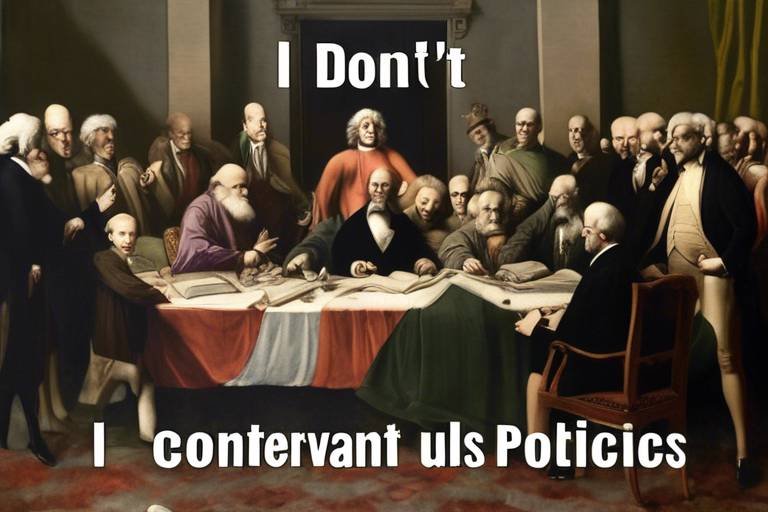Aristotle’s Politics - The Philosophy of Governance
When we dive into the depths of Aristotle’s Politics, we uncover a treasure trove of insights that resonate even in today's political landscape. Aristotle, a towering figure in Western philosophy, didn’t just scratch the surface of governance; he delved deep into the very fabric of what makes a society tick. His explorations into justice, the role of the state, and the ideal political community are not just academic musings; they are essential frameworks that continue to influence modern political thought.
Imagine a society where every individual plays an active role in shaping their community. This is the vision Aristotle paints—a vibrant political community where citizens are not mere spectators but active participants. He believed that the state is not just a collection of people but a living entity that exists to promote the good life. This notion challenges us to reconsider our relationship with governance and the responsibilities that come with it.
Aristotle's work serves as a mirror reflecting our own political systems. His categorization of governments into monarchy, aristocracy, and polity provides a lens through which we can analyze the strengths and weaknesses of contemporary structures. Each form of governance has its unique characteristics, and understanding these can illuminate the paths we choose in our quest for a just society.
Furthermore, Aristotle's emphasis on civic virtue and the role of education in governance highlights the importance of nurturing moral character among citizens. It’s not enough to simply have a government; the people must be equipped with the virtues necessary to uphold the common good. This idea resonates today as we grapple with issues of civic engagement and the ethical responsibilities of individuals within a democratic framework.
In essence, Aristotle’s philosophy of governance invites us to reflect on our own roles as citizens. Are we actively participating in our communities? Are we fostering a sense of belonging and responsibility? By engaging with Aristotle’s ideas, we can better understand the dynamics of power and the significance of justice in our own lives.
- What is the main focus of Aristotle's Politics?
Aristotle's Politics primarily focuses on the nature of governance, justice, and the role of citizens in achieving the good life within a political community.
- How does Aristotle categorize different forms of government?
He categorizes governments into three ideal types: monarchy, aristocracy, and polity, each with its strengths and weaknesses.
- What role does education play in Aristotle's political philosophy?
Education is crucial in shaping the virtues of citizens, ensuring they can contribute meaningfully to governance and the common good.
- What is civic virtue according to Aristotle?
Civic virtue refers to the moral character necessary for citizens to engage in self-governance and uphold the common good.

The Concept of Justice
This article explores Aristotle's views on governance, examining his theories on justice, the role of the state, and the ideal political community, along with their implications for modern political thought.
Aristotle's understanding of justice is foundational to his political philosophy, where he emphasizes that justice is not merely a legal concept but a moral one. He posits that a just society is one where fairness and virtue are prioritized, creating a framework that supports the common good. Imagine a scale, perfectly balanced, representing the harmony that justice brings to society. When each individual receives what they deserve, based on their contributions and needs, the entire community flourishes.
At the heart of Aristotle's concept of justice lies the idea of distributive justice and rectificatory justice. Distributive justice concerns the fair allocation of resources and honors among members of society, ensuring that everyone receives their due share based on merit, while rectificatory justice focuses on correcting wrongs and restoring balance when injustices occur. This duality is crucial; without it, society risks falling into chaos, where the strong overpower the weak.
Moreover, Aristotle argues that justice is intrinsically linked to virtue. He believes that a just individual is one who possesses moral virtues such as courage, temperance, and wisdom. In this sense, justice becomes a habit, cultivated through practice and education. The more citizens engage in virtuous actions, the more they contribute to the overall justice of the community. It's like planting seeds in a garden; with care and attention, these seeds grow into a lush landscape of ethical behavior and mutual respect.
Aristotle also introduces the idea of the Golden Mean, which suggests that virtue lies between two extremes—excess and deficiency. For instance, courage is the mean between recklessness and cowardice. This concept is pivotal in understanding justice, as it encourages individuals to strive for balance in their actions and decisions. When citizens embody this principle, they not only act justly but also inspire others to do the same, creating a ripple effect that enhances the moral fabric of society.
In today's context, Aristotle's views on justice resonate strongly with contemporary discussions about social equity and fairness. As we navigate complex societal challenges, his emphasis on virtue and the common good serves as a guiding light. We find ourselves asking: How can we foster a community that prioritizes justice? What role do we play in ensuring that fairness prevails in our interactions and institutions?
In summary, Aristotle's concept of justice is a multifaceted framework that intertwines fairness, virtue, and the common good. By understanding and applying these principles, we can aspire to create a society that not only recognizes individual rights but also nurtures a collective sense of responsibility. This, in turn, leads to a more harmonious and just political community, where every citizen has a stake in the well-being of others.
- What is Aristotle's definition of justice? Aristotle defines justice as a moral virtue that ensures fairness and the proper distribution of goods within a society.
- How does Aristotle relate justice to virtue? Aristotle believes that justice is deeply connected to virtue; a just person embodies moral virtues that promote the common good.
- What are the two types of justice according to Aristotle? The two types of justice are distributive justice, which focuses on fair allocation of resources, and rectificatory justice, which aims to correct injustices.

The Role of the State
In Aristotle's philosophical framework, the state is not merely a political entity; it is a natural extension of human association. According to him, humans are inherently social beings, and the state exists to fulfill the innate desire for community and collective living. Aristotle believed that the state is essential for achieving the good life, which he defined as a life of virtue and fulfillment. This perspective underscores the idea that governance is not just about maintaining order but also about promoting the well-being of its citizens.
Aristotle posited that the state should aim to cultivate a moral and ethical environment where individuals can thrive. He argued that the state has a duty to create conditions that allow for the flourishing of its citizens. This involves not only the enforcement of laws but also the promotion of education and civic engagement. The role of the state, therefore, extends beyond mere governance; it is about shaping the character and virtues of its citizens. In this sense, the state acts as a moral educator, guiding individuals toward a life of virtue.
One of the key functions of the state, according to Aristotle, is to ensure justice. He believed that a just state is one that recognizes and upholds the rights of individuals while also promoting the common good. This dual focus on individual rights and communal welfare is crucial for maintaining harmony within society. Aristotle's concept of justice can be summarized in three main principles:
- Fairness: The state must ensure that laws and policies are applied equally to all citizens.
- Virtue: The state should promote virtuous behavior among its citizens, encouraging them to act in ways that benefit the community.
- Common Good: The ultimate goal of the state is to create conditions that allow all citizens to live fulfilling lives.
Furthermore, Aristotle emphasized that the state should be structured in a way that encourages active participation from its citizens. He believed that a political community thrives when individuals take an active role in governance. This participation fosters a sense of belonging and responsibility, which in turn enhances civic virtue. In Aristotle's view, a well-ordered state is one where citizens are not just subjects but active participants in shaping their society.
To illustrate the importance of the state in achieving the good life, Aristotle provided a framework that categorizes the various forms of government. He recognized that different political structures have unique strengths and weaknesses, but all must ultimately serve the purpose of promoting the well-being of the community. In essence, the state is a facilitator of human potential, providing the necessary environment for individuals to develop their capacities and contribute to society.
In conclusion, Aristotle's view of the state is deeply intertwined with his understanding of human nature and the pursuit of the good life. The state is not an abstract concept but a vital institution that shapes our existence, guiding us toward moral and ethical living. By recognizing the role of the state as a promoter of justice, civic virtue, and active participation, we can better appreciate its significance in both ancient and modern political thought.
- What is Aristotle's view on the purpose of the state? Aristotle believed that the state exists to promote the good life and ensure justice for its citizens.
- How does Aristotle define justice? Justice, for Aristotle, involves fairness, virtue, and the promotion of the common good within the community.
- Why is civic participation important in Aristotle's philosophy? Civic participation fosters a sense of belonging and responsibility, enhancing the moral character of citizens and the overall well-being of the state.

When it comes to understanding the various forms of governance, Aristotle provides a comprehensive framework that categorizes governments into three ideal types: monarchy, aristocracy, and polity. Each of these types has its own unique characteristics, strengths, and weaknesses, which can help us analyze and evaluate modern political systems. Imagine a toolbox, where each tool represents a different form of governance, each suited for specific tasks yet capable of causing damage if misused.
Aristotle's classification is not merely academic; it serves as a lens through which we can view the effectiveness and ethical implications of different governance structures. For instance, he posits that a monarchy, while potentially the most effective form of governance, hinges on the virtue of the ruler. If the monarch is virtuous and prioritizes the common good, the state can flourish. However, if the ruler becomes self-serving, that same monarchy can devolve into tyranny, showcasing the delicate balance that leadership demands.
Similarly, aristocracy, which Aristotle defines as rule by the best, can also fall prey to corruption. When the elite prioritize their interests over those of the general populace, it transforms into an oligarchy—rule by a select few who are often wealthy and powerful. This transition highlights a critical aspect of governance: the potential for power to corrupt even the noblest intentions. Aristotle's insights remind us that just as a car needs regular maintenance to run smoothly, a government requires constant vigilance to ensure it serves its citizens rather than itself.
On the other hand, we have polity, which Aristotle views as a balanced form of governance that combines elements of both democracy and oligarchy. This type of government aims to represent the interests of all citizens, thus promoting a more inclusive political environment. In a polity, the focus is on the common good, where laws are designed to benefit the majority rather than a privileged minority. This concept is akin to a well-balanced diet, where each food group plays a role in maintaining overall health. Just as one cannot thrive on a diet of only sweets, a political community cannot prosper under a government that favors only a select few.
In summary, Aristotle's typology of government serves as a valuable tool for understanding the complexities of political systems. By recognizing the strengths and weaknesses of monarchy, aristocracy, and polity, we can better appreciate the challenges that come with governance. It invites us to reflect on our own systems and consider whether they align more closely with the ideals of justice and the common good. As we navigate the intricacies of modern governance, Aristotle's insights remain relevant, reminding us that the pursuit of a just society is a continuous journey.

Monarchy and Tyranny
Monarchy, often viewed as the pinnacle of governance, embodies the idea of a single ruler who governs with wisdom and authority for the common good. Aristotle champions the concept of monarchy as an ideal form of government, where a **virtuous** leader can guide the state towards prosperity and justice. However, this ideal is precarious and can easily tip into tyranny—a state where the ruler's selfish desires eclipse the welfare of the populace.
Imagine a ship at sea, where the captain (the monarch) is supposed to navigate the waters for the safety of all aboard. If the captain remains committed to the journey's goal, everyone benefits; however, if the captain becomes self-serving, steering the ship towards personal gains, the entire crew faces peril. This metaphor illustrates how monarchy, while potentially beneficial, is fraught with risks of **misguided leadership**.
Aristotle warns that tyranny arises when a monarch prioritizes personal interests over the common good. In such cases, the ruler may exploit their power, leading to oppression and injustice. This transformation from a benevolent monarch to a tyrant can happen subtly; it often begins with seemingly minor decisions that gradually accumulate into a pattern of abuse. The key characteristics that differentiate monarchy from tyranny can be summarized as follows:
| Characteristic | Monarchy | Tyranny |
|---|---|---|
| Leadership Intent | Common good | Personal gain |
| Public Perception | Respected | Feared |
| Governance Style | Virtuous | Arbitrary |
| Citizen Engagement | Encouraged | Suppressed |
This table illustrates the **stark differences** between a ruler who genuinely seeks the welfare of their people and one who becomes consumed by power. Aristotle's insights remind us that the line between a monarch and a tyrant is often thin and can be crossed with alarming ease. It’s a cautionary tale that resonates through the ages, warning us to remain vigilant against the potential for tyranny, even in the most seemingly stable monarchies.
Ultimately, the challenge lies in ensuring that a monarch remains accountable and connected to the needs of their citizens. This balance is crucial to prevent the descent into tyranny, where the ruler's authority becomes a tool for oppression rather than a means of fostering the common good. By understanding the dynamics of monarchy and tyranny, we can appreciate the importance of **ethical leadership** and the role of civic engagement in safeguarding against the perils of absolute power.
- What is the difference between monarchy and tyranny?
Monarchy is characterized by a ruler who seeks the common good, while tyranny occurs when the ruler prioritizes their personal interests over the welfare of the people. - Can a monarchy be democratic?
Yes, some monarchies incorporate democratic elements, allowing citizens to participate in governance while maintaining a monarch as the head of state. - How can citizens prevent tyranny?
Citizens can prevent tyranny by staying informed, participating in civic duties, and holding leaders accountable through democratic processes.

Aristocracy and Oligarchy
Aristotle's exploration of aristocracy and oligarchy reveals a profound understanding of governance and its implications for society. At its core, aristocracy is defined as the rule by the best individuals, those who possess the virtues and wisdom necessary to lead effectively. In Aristotle's view, these leaders are not merely chosen for their wealth or status but for their moral character and ability to serve the common good. This ideal form of governance aims to create a society where decisions are made with the best interests of all citizens in mind.
However, the line between aristocracy and oligarchy can be perilously thin. Oligarchy, in contrast, signifies rule by a select few, typically the wealthy elite. This form of governance can often lead to the prioritization of personal gain over collective welfare. When power is concentrated in the hands of a few, there is a significant risk that their interests will overshadow those of the broader population. Aristotle critiques this dynamic, highlighting the potential for corruption and self-serving behaviors that can arise when governance is not rooted in virtue.
To illustrate the differences and similarities between these two forms of government, consider the following table:
| Aspect | Aristocracy | Oligarchy |
|---|---|---|
| Definition | Rule by the best individuals | Rule by a few wealthy individuals |
| Focus | Common good and virtue | Personal gain and elite interests |
| Risk | Potential for elitism | Corruption and oppression of the majority |
This comparison underscores Aristotle's belief that while aristocracy can strive for the betterment of society, it is essential to remain vigilant against the pitfalls that can lead to oligarchic tendencies. The challenge lies in ensuring that those in power remain accountable to the populace and do not succumb to the allure of wealth and privilege.
Ultimately, Aristotle's insights serve as a cautionary tale for modern governance. The balance between aristocracy and oligarchy is delicate, and the health of a political community hinges on the virtues of its leaders. As citizens, it is crucial to foster a culture that values ethical leadership and actively engages in the political process to safeguard against the erosion of democratic principles.
- What is the main difference between aristocracy and oligarchy?
Aristocracy is the rule by the best individuals focused on the common good, while oligarchy is the rule by a few wealthy individuals prioritizing personal gain. - Can an aristocracy become an oligarchy?
Yes, an aristocracy can devolve into an oligarchy if leaders prioritize their interests over those of the community. - Why is civic virtue important in aristocracy?
Civic virtue ensures that leaders are committed to the common good and ethical governance, preventing the rise of self-serving behaviors.

Polity and Democracy
When we dive into Aristotle's political philosophy, we encounter the concept of **polity**, which he describes as a balanced form of governance that harmoniously blends elements of both democracy and oligarchy. Imagine a scale, where one side represents the **interests of the many** (democracy) and the other side represents the **interests of the few** (oligarchy). Aristotle believed that a polity could effectively maintain equilibrium between these two forces, ensuring that the voices of all citizens were heard while also considering the wisdom of the more affluent and educated members of society.
In Aristotle's eyes, a polity is not just a theoretical construct; it is a practical approach to governance that aims to achieve the **common good**. The idea is simple yet profound: when citizens actively participate in their government, they contribute to a system that reflects their needs and aspirations. This active involvement fosters a sense of **belonging** and **responsibility**, encouraging individuals to work towards the betterment of their community. It's like being part of a team where everyone plays a role; when one person scores, the whole team benefits.
Aristotle also recognized the importance of **balance** in governance. He argued that too much democracy could lead to chaos and mob rule, where the majority might impose their will on the minority without regard for justice. Conversely, excessive oligarchy could result in a government that serves only the interests of the wealthy elite, neglecting the needs of the general populace. Thus, a polity serves as a **middle ground**, where laws and policies are crafted to reflect a blend of popular opinion and the wisdom of the few.
To illustrate this further, let’s consider how a polity might function in practice:
| Aspect | Polity | Democracy | Oligarchy |
|---|---|---|---|
| Decision-Making | Involves all citizens with a focus on common good | Majority rule, sometimes neglecting minority rights | Decisions made by a small, elite group |
| Representation | Balanced representation of all classes | Primarily represents the interests of the majority | Primarily serves the interests of the wealthy |
| Stability | Promotes stability through compromise | Potential for instability due to factionalism | Can lead to unrest if the majority feels oppressed |
In essence, Aristotle’s vision of polity is not just about governance; it’s about creating a **community** where every citizen has a stake in the outcome. This participatory approach cultivates **civic virtue**, as individuals recognize that their contributions matter. The more engaged citizens are, the more likely they are to uphold the values of justice and fairness that Aristotle prized. It’s akin to a garden where every plant contributes to the ecosystem; without each one, the garden cannot thrive.
In conclusion, Aristotle’s concept of polity serves as a reminder of the delicate balance required in governance. By blending democratic ideals with the wisdom of the few, a polity can create a political environment that not only respects the will of the majority but also safeguards the rights of the minority. This intricate dance between inclusion and expertise is what makes Aristotle’s insights into polity and democracy still relevant today.
- What is the difference between polity and democracy? Polity is a balanced form of governance that incorporates both democratic and oligarchic elements, while democracy primarily focuses on majority rule.
- Why is civic virtue important in a polity? Civic virtue is essential because it encourages citizens to engage in governance and work towards the common good, fostering a healthy political community.
- How can a polity prevent tyranny? By ensuring that both the majority and minority interests are represented, a polity can create a system of checks and balances that prevents any one group from gaining too much power.

The Ideal Political Community
Aristotle's vision of the ideal political community is nothing short of revolutionary. He believed that a thriving society is not merely a collection of individuals but a cohesive unit where active participation is paramount. In this community, citizens are not just passive observers; they are engaged, informed, and responsible members who understand their role in governance. Imagine a vibrant marketplace where everyone contributes their ideas and efforts, creating a rich tapestry of culture and ethics. This is the essence of Aristotle’s political philosophy—where the collective well-being supersedes individual interests.
At the heart of this ideal community lies the concept of civic virtue. Aristotle argued that for a society to flourish, its citizens must cultivate virtues that promote the common good. These virtues include justice, courage, and wisdom, forming the backbone of a healthy political environment. When citizens embody these qualities, they not only enhance their own lives but also contribute to the overall health of the community. Think of civic virtue as the oil that keeps the machinery of governance running smoothly—without it, everything grinds to a halt.
Moreover, Aristotle emphasized the importance of education in nurturing these virtues. He believed that a well-educated populace is essential for the success of any political community. Education, according to Aristotle, should not merely focus on imparting knowledge but also on instilling ethical values and fostering critical thinking. It’s like planting seeds in a garden; with the right care and nurturing, those seeds grow into strong, resilient plants that can weather any storm. In this way, education becomes the foundation upon which a robust political community is built.
To illustrate this further, consider the following table that outlines the key components of an ideal political community according to Aristotle:
| Component | Description |
|---|---|
| Active Participation | Citizens engage in governance, contributing to decision-making processes. |
| Civic Virtue | Moral qualities that promote the common good and enhance community life. |
| Education | Training that develops ethical values and critical thinking skills in citizens. |
| Social Cohesion | A sense of belonging and mutual responsibility among community members. |
In conclusion, Aristotle’s ideal political community is a dynamic entity where the interplay of civic virtue, education, and active participation creates a harmonious society. It’s a place where individuals are empowered to take charge of their destinies while contributing to the greater good. As we navigate the complexities of modern governance, Aristotle's insights remain relevant, reminding us that the strength of a community lies in the collective efforts of its citizens. So, how do we cultivate such a community today? It starts with each of us taking responsibility for our roles and striving for excellence in both personal and civic life.
- What is civic virtue? Civic virtue refers to the moral qualities and behaviors that individuals exhibit to contribute positively to their community and society.
- Why is education important in Aristotle's political philosophy? Education is vital as it shapes citizens' virtues, ensuring they are equipped to participate meaningfully in governance and uphold the common good.
- How can we promote active participation in our communities today? Encouraging open dialogue, providing platforms for citizen engagement, and fostering a sense of belonging can enhance participation.

Civic Virtue
When we dive into the heart of Aristotle's political philosophy, we stumble upon the concept of . This isn't just a fancy term thrown around in philosophical circles; it’s the very essence of what makes a community thrive. Imagine a garden where each plant contributes to the ecosystem. Civic virtue is like the rich soil that nourishes this garden, enabling it to flourish. Aristotle believed that for a political community to function effectively, its citizens must possess a strong moral character. But what does that really mean?
Civic virtue entails a sense of responsibility among citizens to engage actively in their governance. It’s not enough to cast a vote once every few years and call it a day. Instead, Aristotle envisioned a society where individuals are deeply invested in the welfare of their community. This means participating in discussions, holding leaders accountable, and striving for the common good. In essence, civic virtue is about fostering a culture where everyone feels a sense of belonging and a commitment to collective well-being.
One of the most compelling aspects of civic virtue is its ability to create a sense of unity. When citizens prioritize the common good over personal interests, they cultivate an environment of trust and cooperation. This is particularly crucial in times of crisis, where solidarity can mean the difference between chaos and order. Think about it: during a natural disaster, communities that band together, sharing resources and support, are often the ones that recover more swiftly. Civic virtue lays the groundwork for such resilience.
To illustrate the importance of civic virtue, let’s consider a few key components that define it:
- Participation: Engaging in local governance, attending town hall meetings, and being informed about community issues.
- Responsibility: Understanding that individual actions impact the collective and acting accordingly.
- Empathy: Recognizing the needs and struggles of others and acting to alleviate them.
In Aristotle’s view, the cultivation of civic virtue begins with education. He argued that a well-rounded education instills not just knowledge but also the moral values necessary for effective citizenship. This isn't merely about learning facts; it's about developing the ability to think critically and act ethically. Schools and educational institutions play a pivotal role in shaping individuals who are not only knowledgeable but also committed to the welfare of their community.
Ultimately, civic virtue is more than just a philosophical ideal; it’s a practical necessity for a healthy society. It encourages citizens to look beyond their personal desires and consider the greater good. In a world where divisiveness often reigns, Aristotle's emphasis on civic virtue serves as a reminder that the strength of a community lies in the character of its individuals. By fostering civic virtue, we can create a political landscape that is not only just but also vibrant and resilient, capable of weathering the storms of change and adversity.
- What is civic virtue? Civic virtue refers to the moral habits necessary for participating in a democratic society, emphasizing the importance of citizens' responsibilities towards their community.
- Why is civic virtue important? It fosters a sense of community, encourages active participation in governance, and promotes the common good, leading to a healthier society.
- How can civic virtue be cultivated? Through education, community engagement, and encouraging empathy and responsibility among citizens.

Education and Governance
This article explores Aristotle's views on governance, examining his theories on justice, the role of the state, and the ideal political community, along with their implications for modern political thought.
Aristotle's understanding of justice is foundational to his political philosophy, emphasizing fairness and virtue as essential components for a well-functioning society and governance.
In Aristotle's view, the state is a natural entity that exists to promote the good life, emphasizing its importance in achieving moral and ethical objectives for citizens.
Aristotle categorizes governments into three ideal types: monarchy, aristocracy, and polity, each with its strengths and weaknesses, providing a framework for analyzing political systems.
Monarchy, as the ideal form of governance, can devolve into tyranny when the ruler prioritizes personal gain over the common good, highlighting the delicate balance in leadership.
Aristocracy represents rule by the best, while oligarchy signifies rule by the few wealthy; Aristotle critiques both for their potential to serve elite interests rather than the populace.
Polity, or constitutional government, blends elements of democracy and oligarchy, promoting a balanced approach that seeks to represent the interests of all citizens effectively.
Aristotle envisions a political community where citizens actively participate in governance, fostering a sense of belonging and responsibility that enhances civic virtue and collective well-being.
Civic virtue is crucial in Aristotle's political theory, as it underpins the moral character necessary for citizens to engage in self-governance and uphold the common good.
Education plays a pivotal role in Aristotle's vision of governance, acting as the bedrock upon which a virtuous society is built. He firmly believed that a well-educated citizenry is essential for the health of the state. Just imagine a garden; if you want it to flourish, you must nurture it with the right conditions. Similarly, education cultivates the moral and intellectual capabilities of individuals, enabling them to contribute positively to the political community.
Aristotle argued that education should not merely focus on imparting knowledge but also on instilling values and virtues that are necessary for personal and communal well-being. He envisioned a system where citizens are educated to understand their rights and responsibilities, fostering a sense of accountability and participation in governance. In this light, education becomes a tool for empowerment, allowing individuals to engage thoughtfully with political processes.
Moreover, Aristotle emphasized the importance of **practical education**—the kind that prepares citizens to face real-world challenges. This involves not only theoretical knowledge but also the development of critical thinking skills, ethical reasoning, and a sense of civic duty. Without this foundation, how can one expect citizens to make informed decisions that affect their lives and those of others?
To illustrate Aristotle's perspective, consider the following table that outlines the key components of education in relation to governance:
| Component | Description |
|---|---|
| Moral Education | Teaching values and ethics to cultivate virtuous citizens. |
| Practical Skills | Equipping citizens with the skills necessary for active participation in governance. |
| Civic Awareness | Instilling a sense of responsibility and understanding of civic duties. |
| Critical Thinking | Encouraging analytical skills to evaluate political issues and make informed decisions. |
In conclusion, Aristotle's insights on education and governance remain relevant today. A society that prioritizes education not only enhances its political landscape but also nurtures a generation of citizens who are prepared to uphold the common good. After all, as Aristotle pointed out, the strength of a state lies in the virtue of its citizens, and education is the key to unlocking that potential.
- What is Aristotle's view on the role of education in governance?
Aristotle believed that education is essential for cultivating virtuous citizens who can actively participate in governance and contribute to the common good.
- How does Aristotle categorize different types of government?
Aristotle categorizes governments into three main types: monarchy, aristocracy, and polity, each with its own strengths and weaknesses.
- Why is civic virtue important in Aristotle's philosophy?
Civic virtue is crucial as it underpins the moral character necessary for citizens to engage in self-governance and uphold societal values.
Frequently Asked Questions
- What is Aristotle's view on justice?
Aristotle sees justice as a fundamental virtue that promotes fairness and equality within a society. He believes that true justice is about giving each individual their due, emphasizing the importance of moral character and virtue in governance.
- How does Aristotle define the role of the state?
According to Aristotle, the state is a natural entity that exists to facilitate the good life for its citizens. He argues that the state has a crucial role in achieving moral and ethical objectives, thus ensuring the well-being of the community.
- What are the three ideal types of government according to Aristotle?
Aristotle categorizes governments into three ideal types: monarchy, aristocracy, and polity. Each form has its strengths and weaknesses, providing a framework for understanding how different political systems operate and serve their citizens.
- What is the difference between monarchy and tyranny?
Monarchy is considered the ideal form of governance, where a single ruler governs for the common good. However, it can devolve into tyranny when the ruler prioritizes personal interests over the welfare of the people, highlighting the delicate balance required in leadership.
- What does Aristotle mean by aristocracy and oligarchy?
Aristocracy refers to rule by the best individuals, while oligarchy signifies rule by a small group of wealthy elites. Aristotle critiques both forms for potentially prioritizing the interests of the few over the needs of the broader populace.
- How does polity differ from democracy?
Polity is a constitutional form of government that blends elements of democracy and oligarchy. It aims to create a balanced representation of all citizens' interests, promoting a fairer and more inclusive political system.
- What is civic virtue, and why is it important?
Civic virtue is essential in Aristotle's political theory as it underpins the moral character necessary for citizens to engage in self-governance. It fosters a sense of responsibility and belonging, which is vital for the common good.
- What role does education play in governance according to Aristotle?
Aristotle argues that education is crucial for shaping the virtues of citizens. A well-educated populace is better equipped to contribute meaningfully to the political community and uphold the principles of good governance.



















